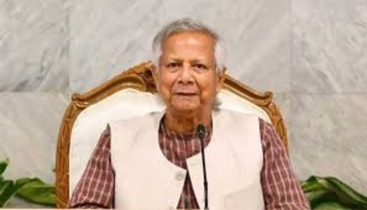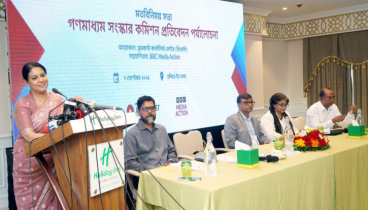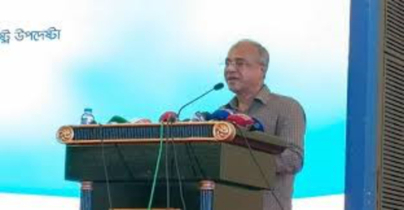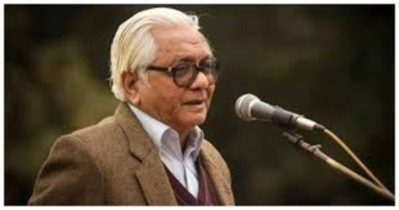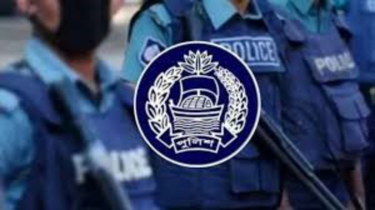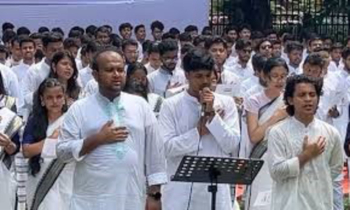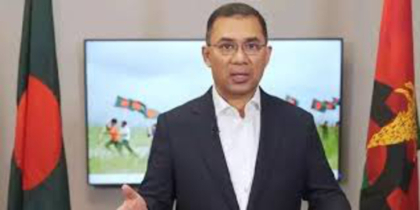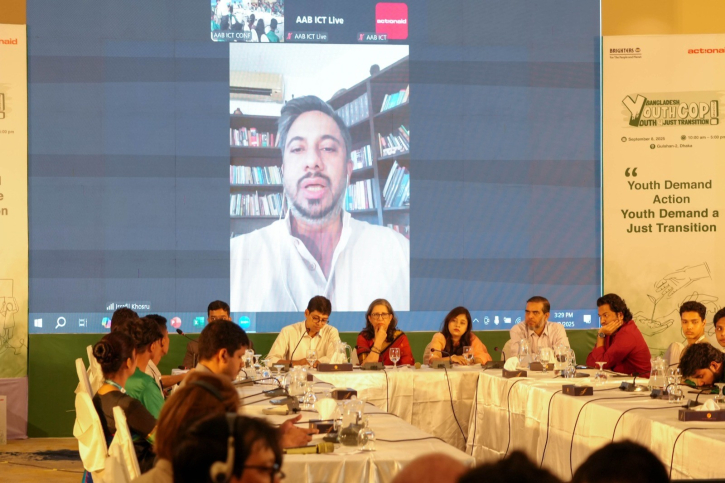
More than a hundred young climate activists from across the country have released a 26-point Youth Charter to amplify Bangladesh’s youth voice ahead of COP30 in Belém, Brazil. The charter was unveiled today at the closing ceremony of Bangladesh Youth COP 2025, a three-day national youth climate conference jointly organised by Brighters and ActionAid Bangladesh in Dhaka.
The charter reflects young people’s demands on climate justice, gender equality, environmental protection, youth participation in decision-making, and climate adaptation and mitigation. Under the theme “Youth for Just Transition,” the conference brought together youth representatives, climate experts, policymakers, and development partners in the conference from 6–8 September.
Closing ceremony and discussions
The final day featured three high-level panel discussions on climate justice and just transition, with participation from political party representatives, climate experts, researchers, diplomats, and senior officials from national and international organisations.
The closing session began with a puppet show to convey a message of climate justice. Later, a panel discussion titled “From Dialogue to Action: Concluding Youth CoP 2025,” was moderated by Farah Kabir, Country Director of ActionAid Bangladesh.
Fariha Aumi, Chair of Brighters and a youth activist said, “We have proven that when young people are given space at the policy table, they can contribute meaningfully. Through this Youth COP, we want to break the tokenism culture in the question of engaging youth for climate action.”
Professor Emeritus Dr Ainun Nishat of BRAC University criticised the reluctance of global leaders to take responsibility on climate issues, he stated that “On loss and damage, negotiations often feel like a scam. Our biggest problems are weak inter-ministerial coordination and a lack of accountability. Young people must think globally and regionally, but act locally.”
In her closing remarks, Farah Kabir questioned whether political parties had a dedicated climate agenda. She said, “It is encouraging that Bangladesh has always carried a history of youth leadership. I call on political parties to use youth voices meaningfully, not merely symbolically.”
Mitchel Lee, Chargé d’Affaires of the Singapore High Commission, stated, “Despite Singapore’s population of 5 million and Bangladesh’s 170 million, our challenges are similar. We are ready to share our experience in climate resilience with Bangladesh.”
Edwin Koekkoek, Team Leader at the Delegation of the European Union to Bangladesh, stated “Initiatives such as the European Green Deal became possible because young people pushed governments to act. Ahead of COP30, we urge all countries to bring ambitious NDCs to keep the 1.5°C goal alive.”
Mohammad Azaz, Administrator of Dhaka North City Corporation (DNCC), highlighted city-level action and said, “We are already working with communities and youth. In our ward-based action plans, we are ensuring gender mainstreaming.”
From political representatives, SM Saif Mostafiz, joint secretary of the National Citizens' Party (NCP) remarked:
“Many still cannot accept someone under 30 having a voice in policymaking. If Bangladesh wants to move forward, that mindset must change.”
Mominul Islam, joint secretary of the Nationalist Democratic Movement (NDM) demanded at least 3% of the national budget be allocated to climate action: “Youth climate activism must not be put into tokenism. It must directly influence policy.”
Israfil Khasru, member of the BNP Chairperson's Foreign Affairs Committee, stressed awareness as the foundation for policy success: “Without awareness, no climate policy will succeed. We must begin by raising climate awareness across the country”, he said.
Ehsanul Mahbub Jobayer, Assistant Secretary General of Jamaat-e-Islami, said “We must learn from the past. Commitments must be honest, and our words must match our actions.”
Youth Charter and prior activities Young representatives presented their 26-point Youth Demand Charter for Just Transition to policymakers, diplomats, and experts. After an interactive dialogue and question–answer session, Youth COP 2025 was officially closed.
Earlier sessions included a high-level webinar on the International Court of Justice’s Advisory Opinion on climate justice. Panel discussions were held on climate-induced migration, nationally determined contributions (NDCs), coastal challenges, and climate finance. A mock climate negotiation session was conducted under the Climate Policy Negotiation Fellowship, facilitated by Supreme Court advocates. In addition, a roundtable was organised to finalise the Bangladesh Youth Position for COP30.
In the run-up to the national event, 35 focus group discussions, 24 key informant interviews, and four regional Youth COPs were conducted in climate-vulnerable areas: Barguna (coastal), Sunamganj (haor/wetland), Lalmonirhat (drought/flood-prone), and Bandarban (hill tracts).
TH

.png)
